Can something as small as a fennel seed truly change the way your body works? Modern nutritionists and traditional healers both say yes. According to the USDA, fennel seeds contain concentrated amounts of fiber, antioxidants, and plant-based compounds that can influence digestion, hormones, and even metabolic function. In fact, just a pinch of fennel seeds has been shown to spark processes in the body that ripple through multiple systems, from your gut to your heart.
Across cultures, fennel seeds have long been used as natural breath fresheners, digestive aids, and women’s health remedies. But modern science is catching up, confirming benefits that extend far beyond folklore. Whether you chew them raw, brew them into tea, or sprinkle them onto meals, fennel seeds may offer more than flavor—they may start an “irreversible reaction” in the sense that once your body absorbs their compounds, the effects set off a chain of positive health changes.
In this article, we’ll explore how fennel seeds impact digestion, metabolism, hormones, and overall wellness. You’ll also see how people around the world use them in daily life, backed by both ancient tradition and modern evidence.
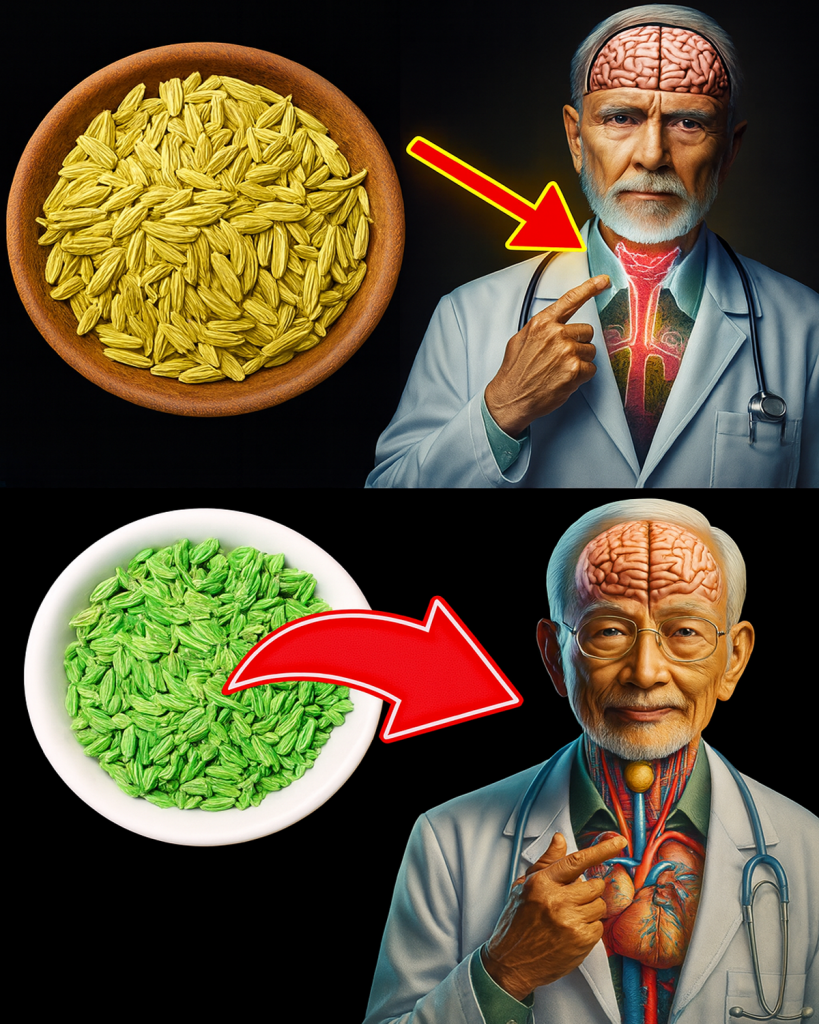
What Makes Fennel Seeds So Unique?
Fennel seeds come from the fennel plant (Foeniculum vulgare), a member of the carrot family. These small, aromatic seeds are loaded with powerful compounds like anethole, flavonoids, and essential oils that give them both flavor and therapeutic properties.
Key Nutrients in One Tablespoon of Fennel Seeds
- Fiber: 2 grams
- Vitamin C: 6% of daily needs
- Manganese: 19% of daily needs
- Calcium, iron, magnesium, and potassium in smaller amounts
The fiber supports digestion, the minerals contribute to bone and heart health, and the plant compounds act as antioxidants that help the body fight stress and inflammation.
1. Fennel Seeds and Digestion: A Natural Reset
For centuries, fennel seeds have been chewed after meals in India and the Middle East to ease bloating and aid digestion. The oils in fennel seeds relax the muscles in the gastrointestinal tract, reducing gas and cramping.
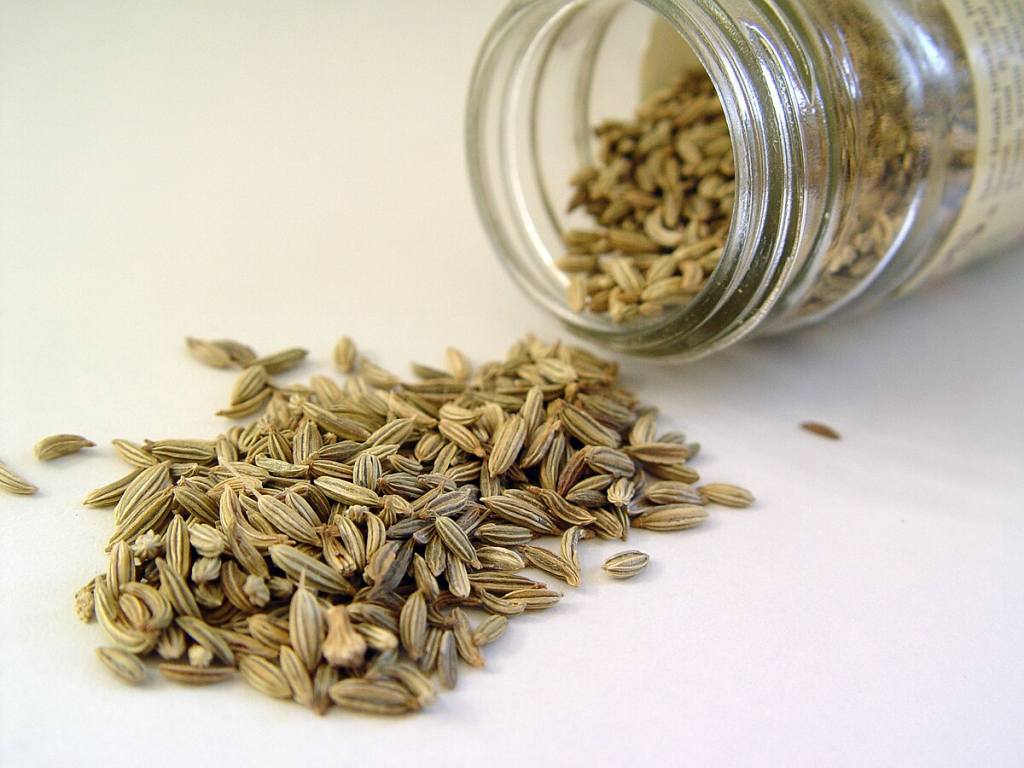
Real-life example
Maria, 48, struggled with post-meal bloating for years. After adopting the habit of chewing a pinch of fennel seeds after lunch, she noticed lighter digestion and reduced discomfort within two weeks.
Practical tip
Chew one teaspoon of fennel seeds after a heavy meal or brew into a tea with hot water for relief.
2. Hormonal Balance and Women’s Health
Fennel seeds are considered phytoestrogenic, meaning they contain plant-based compounds that mimic the effects of estrogen in the body. Some studies suggest they may ease symptoms of menopause, such as hot flashes, and even support menstrual comfort by reducing cramping.
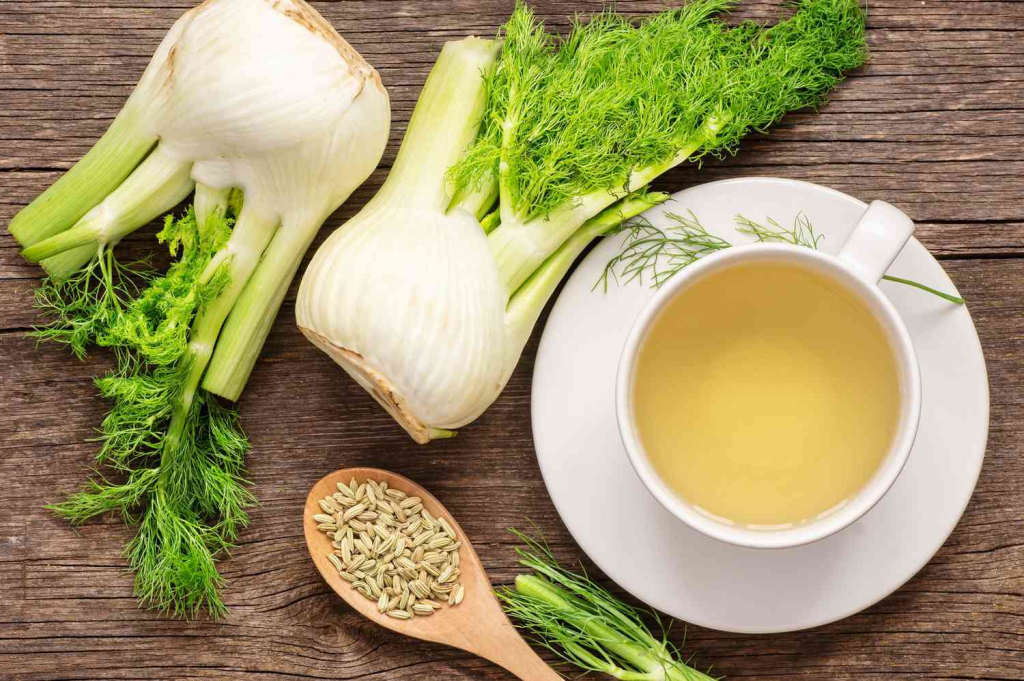
Case story
Anita, 52, going through menopause, began drinking fennel seed tea nightly. Over time, she experienced fewer hot flashes and felt calmer during the night. While not a replacement for medical therapy, it offered her natural comfort.
Caution
Those with hormone-sensitive conditions should consult a healthcare provider before using fennel seeds regularly.
3. Boosting Metabolism and Weight Management
The fiber content of fennel seeds supports satiety, helping reduce overeating. Meanwhile, compounds like anethole may improve metabolism by influencing digestion and fat absorption. Some studies also show fennel tea can reduce hunger cues, making it easier to stick to healthy eating patterns.
Practical tip
Start your morning with fennel tea to reduce cravings and support metabolism throughout the day.
4. Fennel Seeds and Heart Health
The potassium and fiber in fennel seeds help regulate blood pressure and cholesterol. Their antioxidants reduce oxidative stress, protecting arteries from long-term damage. By supporting circulation and lowering inflammation, fennel seeds contribute to cardiovascular resilience.
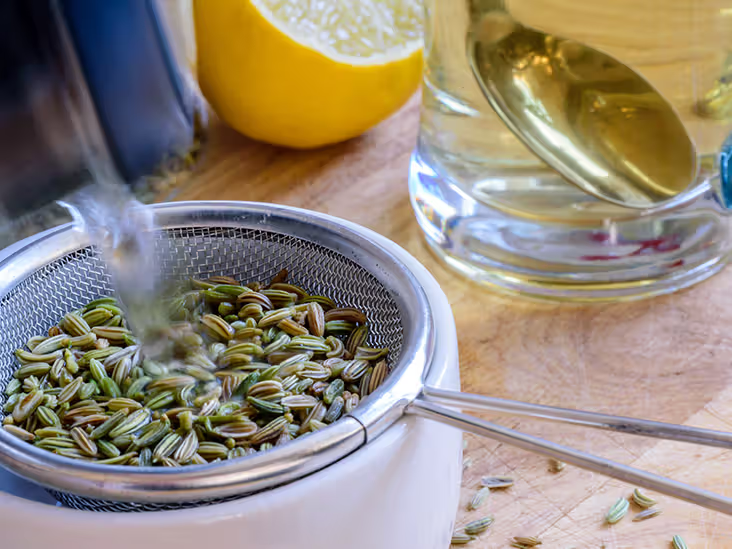
Comparison Table: Fennel Seeds vs. Common Heart-Friendly Foods
| Food | Key Benefit | Nutrient Highlight |
|---|---|---|
| Fennel Seeds | Blood pressure & cholesterol | Potassium, antioxidants |
| Oats | Lower cholesterol | Soluble fiber |
| Garlic | Improves circulation | Allicin |
| Green Tea | Reduces oxidative stress | Catechins |
5. Respiratory Health and Detox Support
Traditional medicine often uses fennel seeds for respiratory issues. Their anti-inflammatory properties can help soothe sore throats and loosen mucus in the airways. Fennel tea is sometimes used as a natural remedy for mild coughs or chest tightness.
Practical tip
Steep fennel seeds with ginger and honey for a soothing drink during cold and flu season.
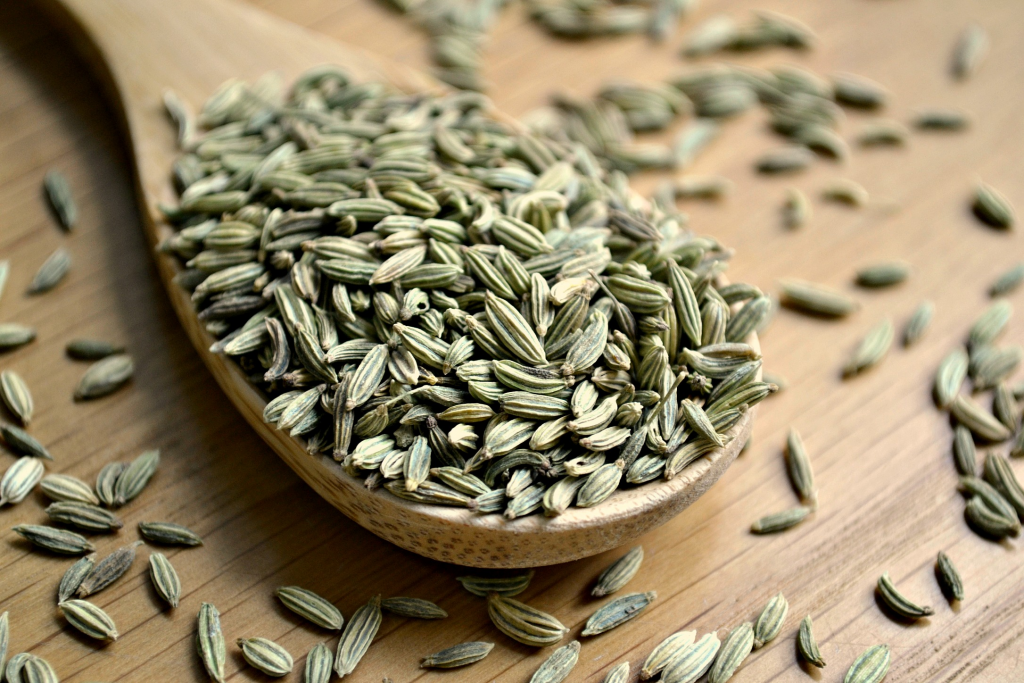
6. Antioxidant Protection for Long-Term Wellness
Free radicals damage cells and accelerate aging. Fennel seeds, rich in flavonoids and polyphenols, act as antioxidants that reduce this damage. Regular consumption supports healthy skin, slows down age-related decline, and protects vital organs from oxidative stress.
Real-life example
James, 60, began chewing fennel seeds daily as part of his evening walk routine. He noticed improved digestion and energy levels, along with fewer sugar cravings. His doctor noted improved cholesterol levels at his next check-up.
How to Use Fennel Seeds Daily
- Chew raw: One teaspoon after meals for digestion.
- Fennel tea: Steep a teaspoon of seeds in hot water for 10 minutes.
- Cooking: Add to soups, stews, or baked goods for flavor and health benefits.
- Infused water: Soak seeds overnight in water and drink in the morning.
Consistency is key. Even a small daily amount can deliver noticeable changes over time.
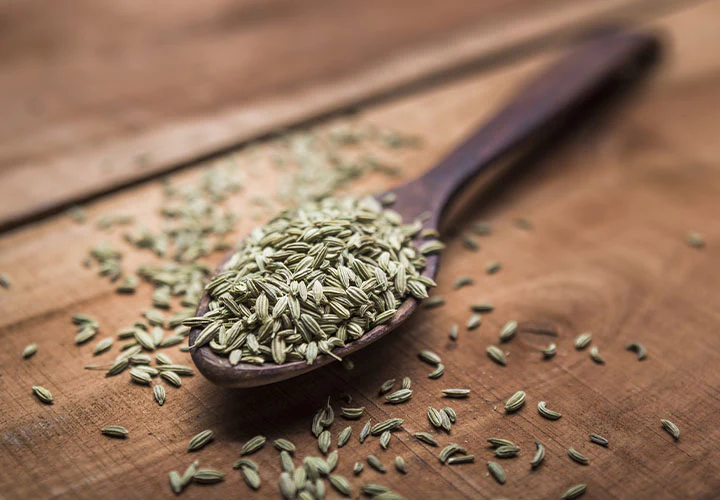
Precautions
Fennel seeds are safe for most people but should be consumed in moderation.
- Avoid excessive intake during pregnancy without medical advice.
- May interact with certain medications, especially blood thinners.
- People with hormone-sensitive conditions should exercise caution.
Conclusion
Even a pinch of fennel seeds can set off a chain reaction in your body—improving digestion, balancing hormones, supporting heart health, and protecting against oxidative stress. This tiny spice carries centuries of traditional wisdom and modern scientific backing. By making it part of your daily routine, you may experience long-lasting benefits that ripple across multiple areas of health.
Frequently Asked Questions
How much fennel seed should I consume daily?
One teaspoon chewed or brewed as tea is enough for most adults.
Can fennel seeds help with weight loss?
They may support satiety and metabolism, but they should be combined with a healthy lifestyle.
Are fennel seeds safe for everyone?
Yes, for most people. But if you are pregnant, on medication, or have a hormone-sensitive condition, consult your doctor first.
Do fennel seeds have side effects?
Excessive intake may cause digestive upset or allergic reactions in sensitive individuals.
This article is for informational purposes only and does not replace professional medical advice.




